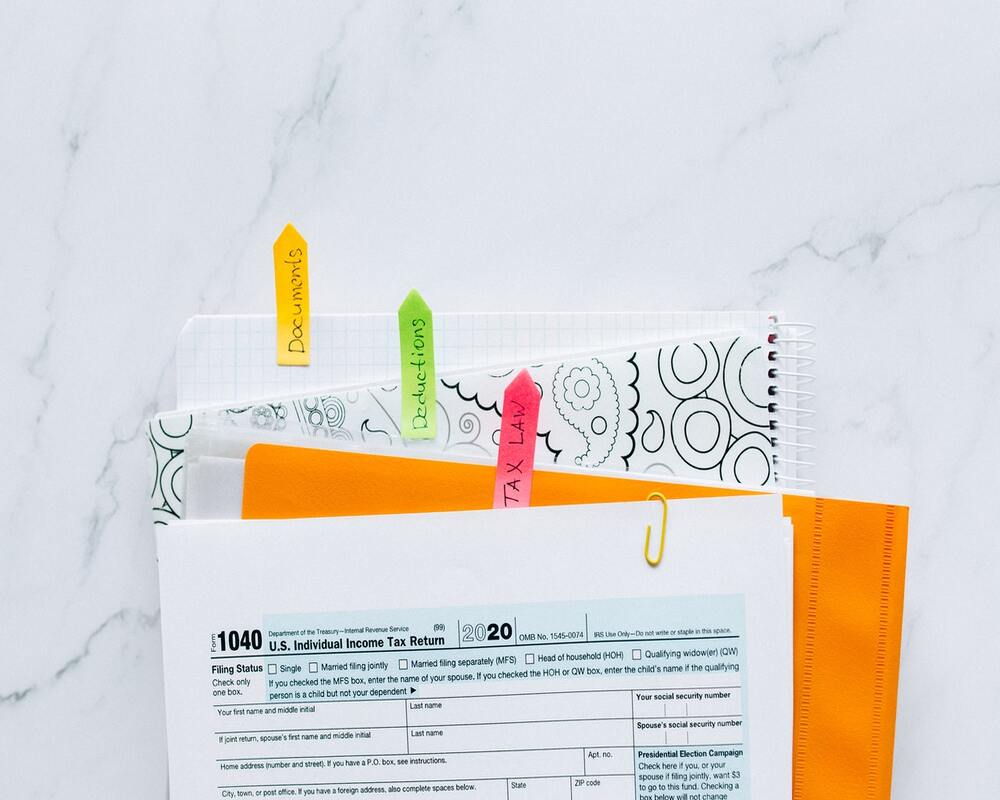
Taking the CPA Exam to become a Certified Public Accountant requires a significant investment of your time and resources, so it’s natural to want to know the average CPA salary. While you might already enjoy the profession, there’s nothing wrong with wanting to understand more about a CPA accountant salary, and if a CPA salary aligns with your long-term personal and professional goals.
Summary
Certified Public Accountants in the U.S. typically earn an average of $80,000 to over $100,000 per year, a figure that increases with experience and specialization and represents a 21% premium over non-credentialed accountants, while also offering higher job satisfaction and long-term career demand.
What Is the CPA Salary in the US?
Average CPA salary in the United States: $80,000 - $100,000+ |
The average CPA salary varies greatly across the US and the world, based on factors like location, experience, specialization, and even the source of the information. That said, as of February 2026, most sources cite the average CPA salary in the US between $80,000 and $100,000.1-6
To get a comprehensive understanding of what CPA salary to expect throughout your career, it's important to look at the many factors that affect it.
CPA Salary by Experience
Generally speaking, more experience begets more seniority, which boosts your chances of increasing your salary. Current national averages for CPA salary by experience include: 7
- Entry-level: $60,000 - $70,000
- Mid-career: $75,000 - $90,000
- Manager: $95,000 - $120,000
- Senior Manager/Director: $130,000 - $160,000+
Not every CPA will follow—or even want—this professional trajectory, and that’s okay! The key is to find a balance between your salary goals and career fulfillment.
CPA Salary by Location
Where you live significantly impacts earnings. Accounting professionals in the western U.S. average $87,635 annually—up to 10% more than those in other regions and 41% higher than accountants outside the United States.
Specifically, the average accounting salaries by region are:
- West: $87,635
- Midwest: $80,125
- South: $81,770
- Northeast: $79,760
- International: $61,895
But to understand how far your CPA salary will go in each location, you’ll also need to consider the cost of living.
For example, CPAs make the most in New York at an average of $113,310 per year, but they also need to consider that the average cost of living for a family of four is $93,600.8 If you’re the sole provider of a four-person family in New York, you’re therefore left with a disposable income of around $19,710. Also, you'll need to factor that living in Manhattan will be significantly more expensive than cities like Albany or Buffalo.
Meanwhile, CPAs in Kansas earn an average of $75,885 per year9 ($37,425 less than the average in New York). But they benefit from greater affordability. The cost of living in Kansas is 14% less expensive than the national average,5 at about $42,600 yearly. This gives CPAs in Kansas roughly $33,285 of disposable income, as opposed to the $19,710 of those living in New York.
Despite salary and living expenses, every job will come with its benefits and disadvantages, and where you choose to look for employment depends entirely on you: the job position, your lifestyle, career goals, financial planning, social or familial ties, etc.
CPA Salary by Specialization
Developing a specific specialization within the profession (ie: tax, audit and assurance, or accounting) can change your expected salary. Consider developing skills in the following areas as a way to boost your earnings.
- Audit & Assurance: Audit and assurance go hand-in-hand, verifying and building trust in the accuracy of reporting and financial statements.
- Senior auditor and assurance professional average annual salary: $88,000-$118,000
- Senior manager and director average annual salary: $107,843-$160,000
- Tax: Corporate tax CPAs strategically work to help organizations avoid risk and remain compliant.
- Senior corporate tax accountant average annual salary: almost $90,22710
- Tax Director average annual salary: $191,95811
- Financial Reporting: Financial and SEC reporting are critical to businesses because they provide transparency, help inform decisions, and report earnings and performance.
- Senior Financial Reporting Accountant average annual salary: $99,97912
- Director of SEC Financial Reporting average annual salary: $172,24213
Continuing professional education (CPE) is required of all CPAs to maintain licensure. However, it’s also the perfect opportunity to specialize within your field and increase the CPA salary that you can expect to earn.
CPA Salary by Industry and Employer
According to the U.S. Bureau of Labor Statistics, the highest-paying industries for accountants and auditors are:14
- Finance and insurance
- Management of companies and enterprises
- Accounting, tax prep, bookkeeping, payroll services
- Government
Pay will vary, even within lucrative industries. Big 4 vs. mid-tier accounting firms typically have the budget to offer a more attractive compensation package. However, while smaller firms or self-employment may not pay as much as the bigger organizations, they have other advantages attractive to candidates depending on each one’s personal and career goals.
CPA Salary vs. Accountant Salary
Earning potential is a critical consideration when deciding if the CPA path is right for you. And on average, a CPA’s salary is significantly higher than a non-CPA accountant. Becker's 2026 Accounting Salary Guide gathered information from accountants across industries, including credentialed and non-credentialed professionals. According to the data, credentialed accountants earn on average 21% more than non-credentialed ones. Specifically, the average non-credentialed accountant salary is $79,135, while the average credentialed accountant salary is $95,645.
The difference highlights that, in the accounting profession, deciding not to pursue certifications and licensures will significantly stunt your career growth and earning potential.
Benefits Beyond Salary
In addition to an attractive CPA salary, there is more to a career than money. Earning your CPA license comes with numerous benefits and responsibilities a CPA can do that an accountant can’t. When weighing your decision to pursue a CPA license, consider the additional perks that come with the title.
Job Satisfaction
Credentialed professionals report overall higher job satisfaction than non-credentialed accountants, according to the data reported in Becker's 2026 salary guide. Overall across industries, 69% of credentialed professionals report satisfaction vs 63% with non-credentialed professionals. Similarly, 71% of credentialed accountants report satisfaction in their work-life balance vs only 69% of non-credentialed accountants. In factors like flexible work environment, meaningful work, and high salary, the percentage of credentialed professionals who report satisfaction is likewise higher than that of non-credentialed professionals.
Prestige
The rigor and standards required to earn your CPA license contribute to a higher salary—as well as an increase in recognition and reputation. Passing the CPA Exam and adhering to industry, state board, and ethical standards throughout your career convey status and credibility to employers, which are also baked into salaries.
Career Fast Track
CPA licensure proves your skills and knowledge to practice in private and public accounting, which opens doors to whichever career path most interests you. The versatility of your training and depth of your specialized knowledge—proven by passing all four sections of the CPA Exam—also mean that you’re exposed to a bigger variety of clients, industries, and job opportunities. Whatever you invest in your CPA training, you’ll likely earn back through salary, earning potential, and career options.
High Demand for CPAs
It's estimated that 75 percent of today’s CPAs will retire in the next 15 years.17 Additionally, 2023 marked the lowest number of CPA candidates the industry had seen in over 16 years.18 These statistics demonstrate a remarkable lack of qualified talent to manage the billions of dollars at stake for public entities in need of CPA services and skillsets.
Get More Industry Salary Data
Planning your career path is the first step in achieving your goals. Learn more about the current salary landscape in accounting so you can define your goals and learn the best way to reach them. Download our free 2026 Accounting Salary Guide to dig into data-based findings on salary factors, job satisfaction, and more.
- https://www.indeed.com/career/certified-public-accountant/salaries
- https://www.bls.gov/ooh/business-and-financial/accountants-and-auditors.htm
- https://www.payscale.com/research/US/Job=Certified_Public_Accountant_(CPA)/Salary
- https://www.accounting.com/careers/cpa/salary/
- https://www.investopedia.com/articles/investing/051415/how-much-do-cpas-make.asp
- https://www.ziprecruiter.com/Salaries/Cpa-Salary
- https://www.mileseducation.com/blog/accounting/cpa-salary-in-usa-and-india-average-to-highest-2024
- https://www.glassdoor.com/Salaries/audit-assurance-senior-salary-SRCH_KO0,22.htm
- https://www.talent.com/salary?job=assurance+audit+manager
- https://www.indeed.com/career/senior-tax-accountant/salaries
- https://www.ziprecruiter.com/Salaries/Tax-Director-Salary
- https://www.ziprecruiter.com/Salaries/Senior-Financial-Reporting-Accountant-Salary
- https://www.salary.com/research/salary/benchmark/financial-reporting-director-salary
- https://www.bls.gov/ooh/business-and-financial/accountants-and-auditors.htm#tab-5
- https://www.ziprecruiter.com/Salaries/Accountant-No-Experience-Salary
- https://www.miamiherald.com/careers-education/cpa-vs-accountant/
- https://controllerscouncil.org/the-growing-shortage-of-accountants-and-cpas/
- https://www.aicpa-cima.com/professional-insights/download/2023-trends-report








